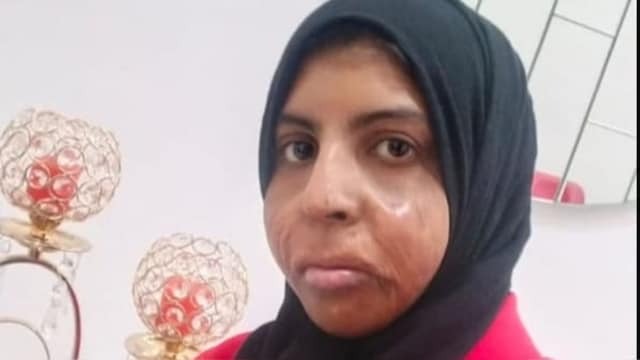
In a tragic turn of events, Shahzadi Khan, an Indian woman from Uttar Pradesh, has been executed in the United Arab Emirates (UAE) after being sentenced to death for allegedly killing a four-month-old child. The execution took place on February 15, 2025, as confirmed by the Ministry of External Affairs (MEA) and reported to the Delhi High Court on Monday.
Execution Confirmed by Indian Government
The MEA issued an official statement, confirming that Shahzadi Khan was convicted of murder and that the UAE’s highest court, the Court of Cassation, upheld the death sentence.
“An Indian national, Ms. Shahzadi, was convicted on charges of murder of an infant and sentenced to death in the UAE. The highest court of the UAE upheld the sentence. The Embassy provided all possible legal assistance to Ms. Shahzadi, including sending mercy petitions and pardon requests to the Government of the UAE," the MEA stated.
Despite legal efforts and mercy petitions filed on her behalf, the UAE authorities proceeded with the execution. The Indian government was formally informed about her execution on February 28, 2025, and her family was also notified of the same.
Delhi High Court Expresses Regret Over Execution
During a hearing at the Delhi High Court, Justice Sachin Datta called the execution “very unfortunate.”
The hearing was in response to a plea filed by Shahzadi Khan’s father, Shabbir Khan, who had sought clarity regarding his daughter's status. Additional Solicitor General Chetan Sharma informed the court that the execution had already been carried out on February 15, 2025, and that her last rites were scheduled for March 5, 2025.
“It is over. She was executed on February 15. Her last rites will be held on March 5," Sharma told the court.
The Arrest and Conviction of Shahzadi Khan
Shahzadi Khan was arrested and handed over to Abu Dhabi police on February 10, 2023. After months of legal proceedings, she was sentenced to death on July 31, 2023, for the alleged murder of her employer’s four-month-old child. She was held in Al Wathba prison until her execution.
Her father, Shabbir Khan, a resident of Banda in Uttar Pradesh, revealed that he had been desperately seeking answers about his daughter's fate, but his repeated requests to the MEA were met with silence.
Allegations of Unfair Trial and Forced Confession
Shahzadi's legal team and family members raised serious concerns about the fairness of her trial. The petition filed by her father alleged that she was not adequately represented in court and was forced to confess under duress.
“She was coerced into confessing, which ultimately led to the death penalty being imposed on her,” the petition stated.
During the court proceedings, the petitioner’s counsel pointed out that the family’s main concern was to determine whether Shahzadi was still alive or had already been executed.
According to the petition, Shahzadi made a final phone call to her family on February 14, informing them that she would be executed within the next one or two days. Since that call, her family had received no further updates regarding her condition.
Government’s Response and Last Rites Arrangement
The Indian Embassy in UAE remained in contact with Shahzadi's family and was making arrangements for them to attend her last rites in Abu Dhabi.
“We did our best. We hired a law firm to defend her in court. However, the laws there impose severe punishment for the murder of an infant,” the Centre’s counsel informed the Delhi High Court.
Despite India's diplomatic efforts, the UAE authorities proceeded with the execution as per their legal system, which upholds strict punishments for crimes against children.
Family’s Grief and Questions About Justice
Shabbir Khan and his family are now left shattered and searching for answers. Their biggest concerns include:
- Did Shahzadi receive a fair trial?
- Was her confession truly voluntary, or was it extracted under pressure?
- Why was the execution carried out without timely notification to her family?
- Could more diplomatic intervention have saved her?
With human rights organizations often raising concerns about due process in such cases, this execution has once again sparked debate about the treatment of foreign workers and legal representation in Gulf countries.
Shahzadi Khan's execution has left her family devastated, and the Delhi High Court has expressed regret over the outcome. While the Indian government claims to have provided all possible assistance, her family believes that justice was not served.
As the world watches, this case serves as a harsh reminder of the challenges faced by Indian nationals working abroad, particularly in countries with strict legal systems.
1. What was Shahzadi Khan accused of?
Shahzadi Khan was accused of murdering a four-month-old child, leading to her conviction and death sentence in the UAE.
2. Did the Indian government try to save her?
Yes, the Indian government provided legal assistance, hired a law firm, and sent mercy petitions to the UAE authorities. However, the UAE upheld the sentence.
3. When was Shahzadi Khan executed?
She was executed on February 15, 2025, as confirmed by the UAE authorities on February 28, 2025.
4. Was Shahzadi Khan given a fair trial?
Her family and legal representatives allege that she was not adequately represented and was forced into confessing, raising concerns about the fairness of the trial.
5. When will her last rites be performed?
Her last rites are scheduled for March 5, 2025, and arrangements are being made for her family to attend.

 Desk
Desk Share
Share

_939839210.jpg)




